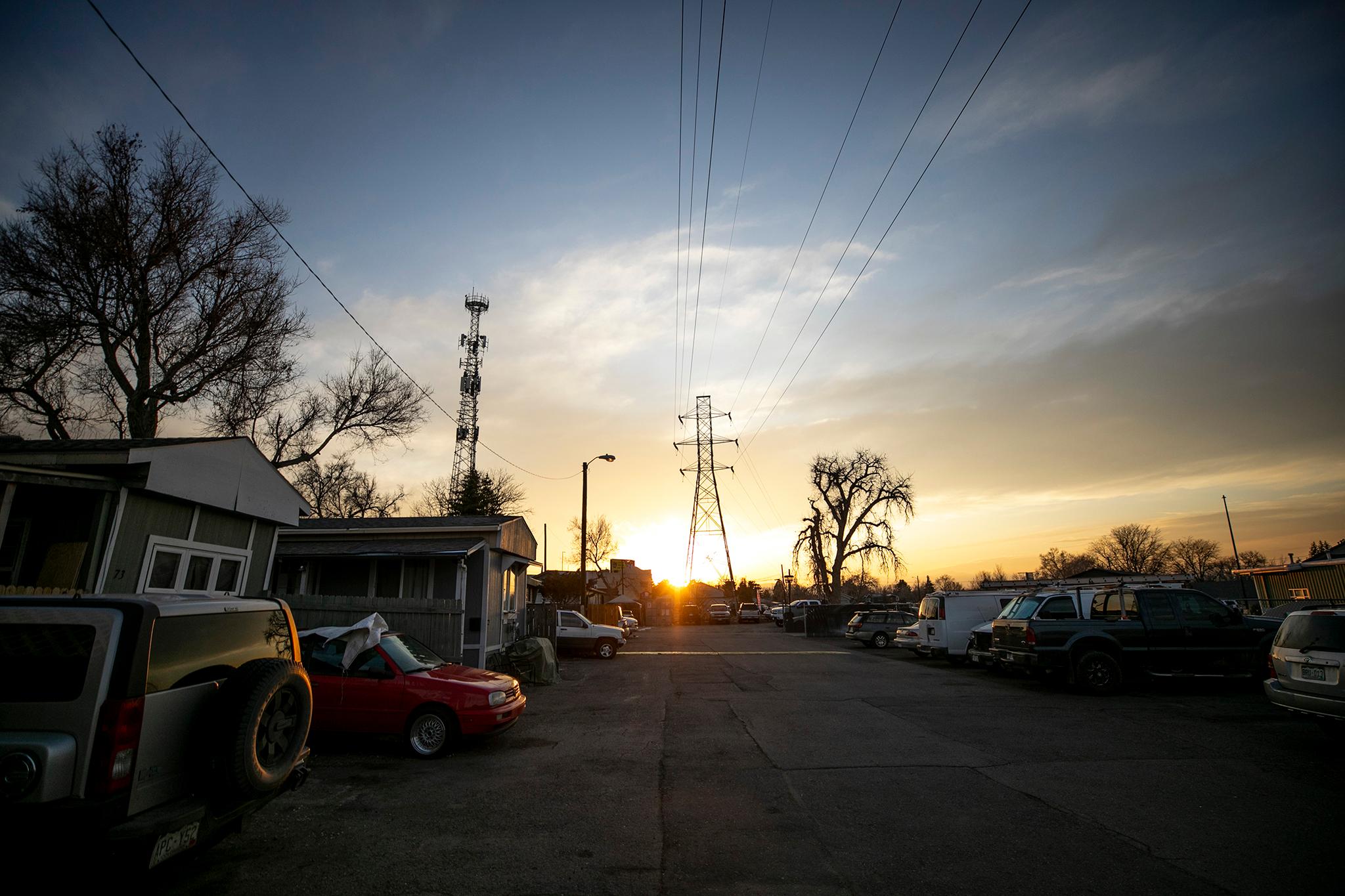Editor's note: This article was updated on Sept. 28 with news that the mobile home park owner accepted his tenants' offer.
Denver is getting its first cooperatively owned mobile home park. Sharing Connexion, the nonprofit representing residents, signed paperwork with park owner Chad Graves Wednesday, making the sale official. That means more than 70 families that live at the park will be able to stay put in homes many have lived in for decades.
"Residents are really excited, feeling a lot more secure now," said Andrea Chiriboga-Flor, who has worked as an organizer at the park, first with the nonprofit 9to5 and now as Executive Director of her new organization, the Justice for the People Legal Center.
Some of the families are on fixed incomes or are immigrants, and with rising housing costs in Denver, could have faced housing insecurity and displacement if the park sold to a corporate owner.
The residents of Capitol City Mobile Home Park, soon to be renamed Montevista, still have to wait a few more months for the deal to close completely and work through city paperwork. Then, Sharing Connexion will fill the management role in collaboration with residents as they transition to a fully cooperative model.
"The kinds of communities that we're working with, they're constantly disappointed by systems that are supposed to support them, and so this is just really great to hear," Chiriboga-Flor said. "We're very, very excited and excited for the next steps."
The original story continues below.
When Capitol City Mobile Home Park went up for sale in Westwood in the summer of 2022, residents feared a new owner might redevelop the site or hike their rents. Across the state, changing policies and rising real estate prices have closed some parks and raised costs at others, often displacing dozens of residents.
In Westwood, the stakes of a potential sale to a new owner or investor were high for the more than 70 families that live at the park. Many residents are older and live on fixed incomes. Others are immigrants, some of whom cannot access local housing resources. People walk to work and school and look after elderly neighbors in the tight-knit community.
But with the help of nonprofit partners and organizers, residents raised $11.5 million to put in an offer, and are on the cusp of purchasing the park many have called home for decades.
They plan to run it as a cooperative, making Capitol City -- soon to be renamed Montevista -- Denver's first resident-owned mobile home park. Residents put in an offer in August, and while all the paperwork still needs to be signed, organizers said they expect everything to go through. On the Sunday before Labor Day, community members hosted a part-celebration, part-fundraising party celebrating the future cooperative park.
"When the park went for sale, the first thing I told my kids and my wife was that we might need to move out of here. That was difficult for them and they cried," said park resident Jorge Loya in Spanish. "But thanks to God and everyone's support, we are going to stay here."
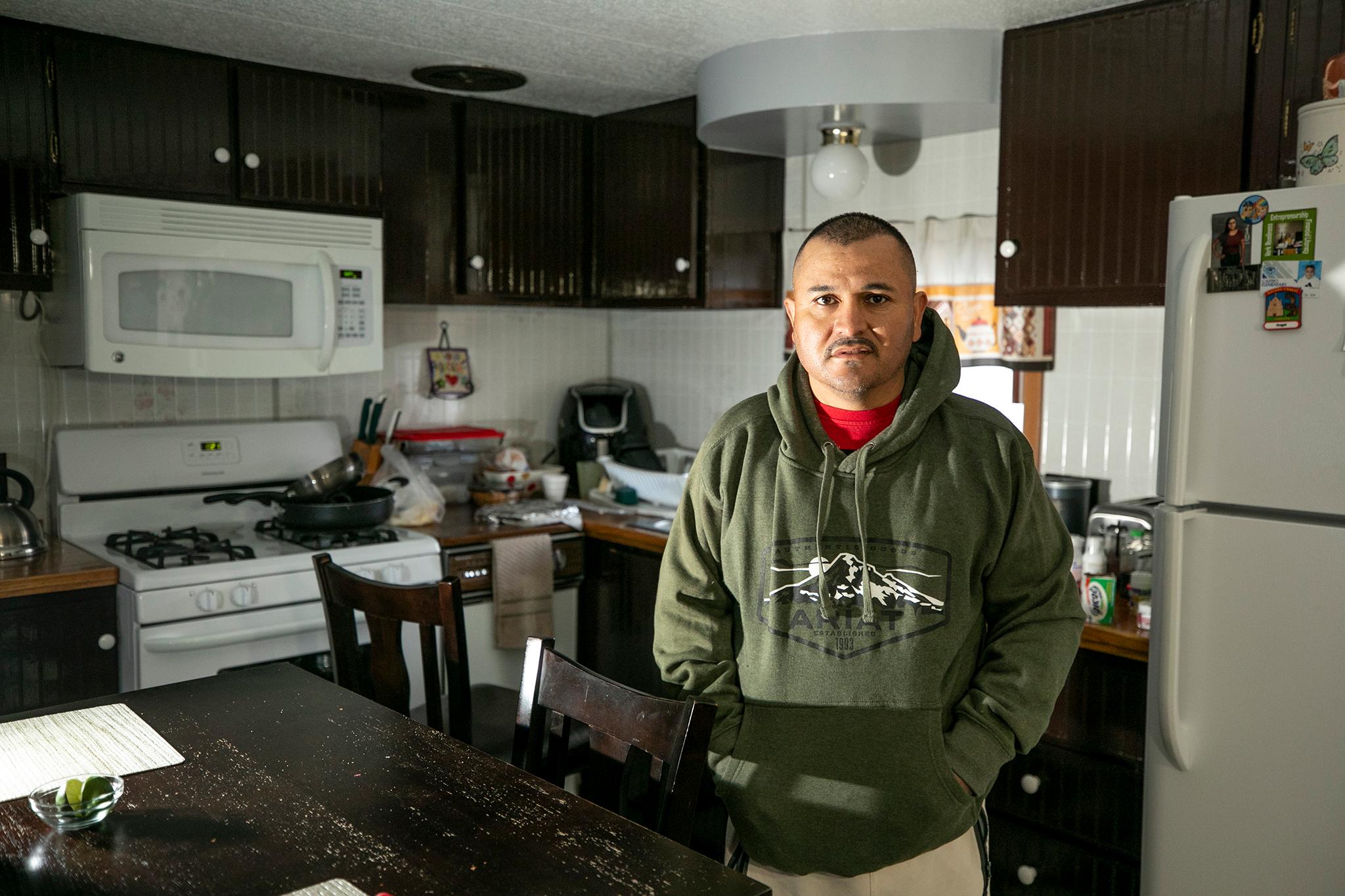
Raising the money needed to make an offer on the park has been a long and shaky process and involved putting to use new city and state laws and bringing in a number of nonprofit partners.
Previous Denver zoning laws aimed to phase out mobile home parks in the city by prohibiting residents from replacing their units. Even a few years ago, residents from a park that was closing may have been able to find affordable housing nearby. But as housing costs have steadily increased, the sale of a park often means displacement for the families who live there.
In March, City Council changed that rule to help residents like those in Westwood. But getting the policy right is tricky; legislation that might help residents can also make parks more appealing to investors, driving up costs or risking the land being sold to buyers looking for redevelopment opportunities. In November of 2022, City Council passed a moratorium on mobile home park development until April of 2024.
Meanwhile, state legislators passed a law in 2022 aimed at preventing displacement by requiring park owners to give residents 120 days to raise money and make an offer.
"A lot of these changes are a decade overdue," said Councilmember Jamie Torres, who represents the mobile home park in Westwood. "This park in particular was asking for the changes we just did 10 years ago. So it's good to start to see some of that actually feel like it's going to make a difference."
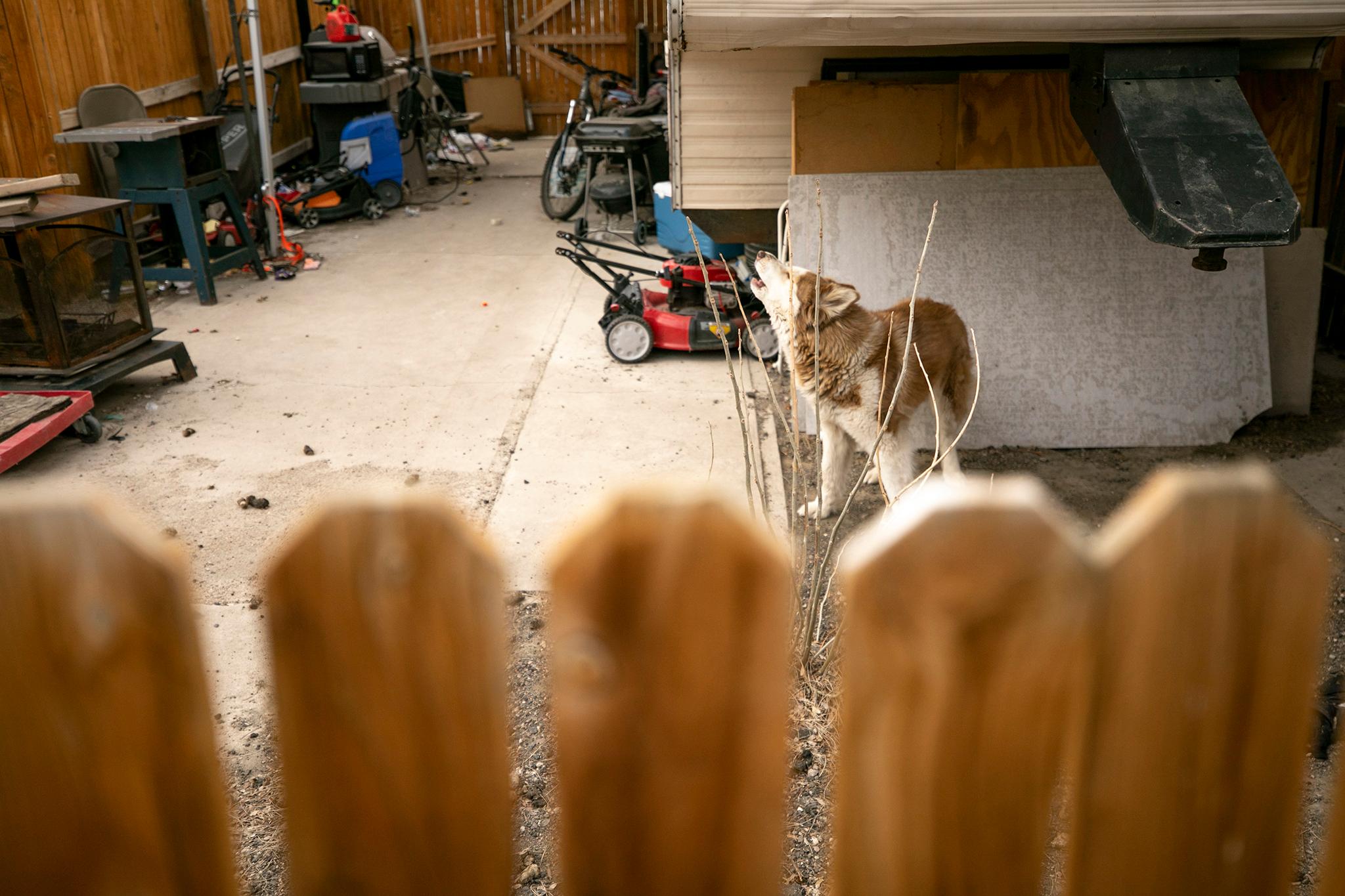
Still, efforts to purchase parks as cooperatives have had mixed success statewide.
Residents in Leadville successfully purchased their park in 2021. But other owners turned down resident offers in Aurora in 2017 and Fort Collins in 2021. The residents ultimately had to leave.
At Capitol City Mobile Home Park, owner Chad Graves said he was willing to sell to residents, and extended the 120-day state deadline to give residents more time to raise money. But in April, the residents' original nonprofit funders pulled out, and Graves told Denverite he had a private offer he was willing to sell to.
But the Westwood residents continued organizing. They found a new nonprofit partner, Sharing Connexion, raised the money through grants and loans and put in an offer in August. The offer is not officially signed yet, but organizers said they expect it to go through.
Denverite has reached out to Graves for comment.
"I feel very excited because we have a lot of effort and work thanks to the community," said Eduardo Castañeda, a resident at the park and one of the lead organizers, in Spanish. "We have a launching point for the city of Denver to be the first participants in obtaining our park."
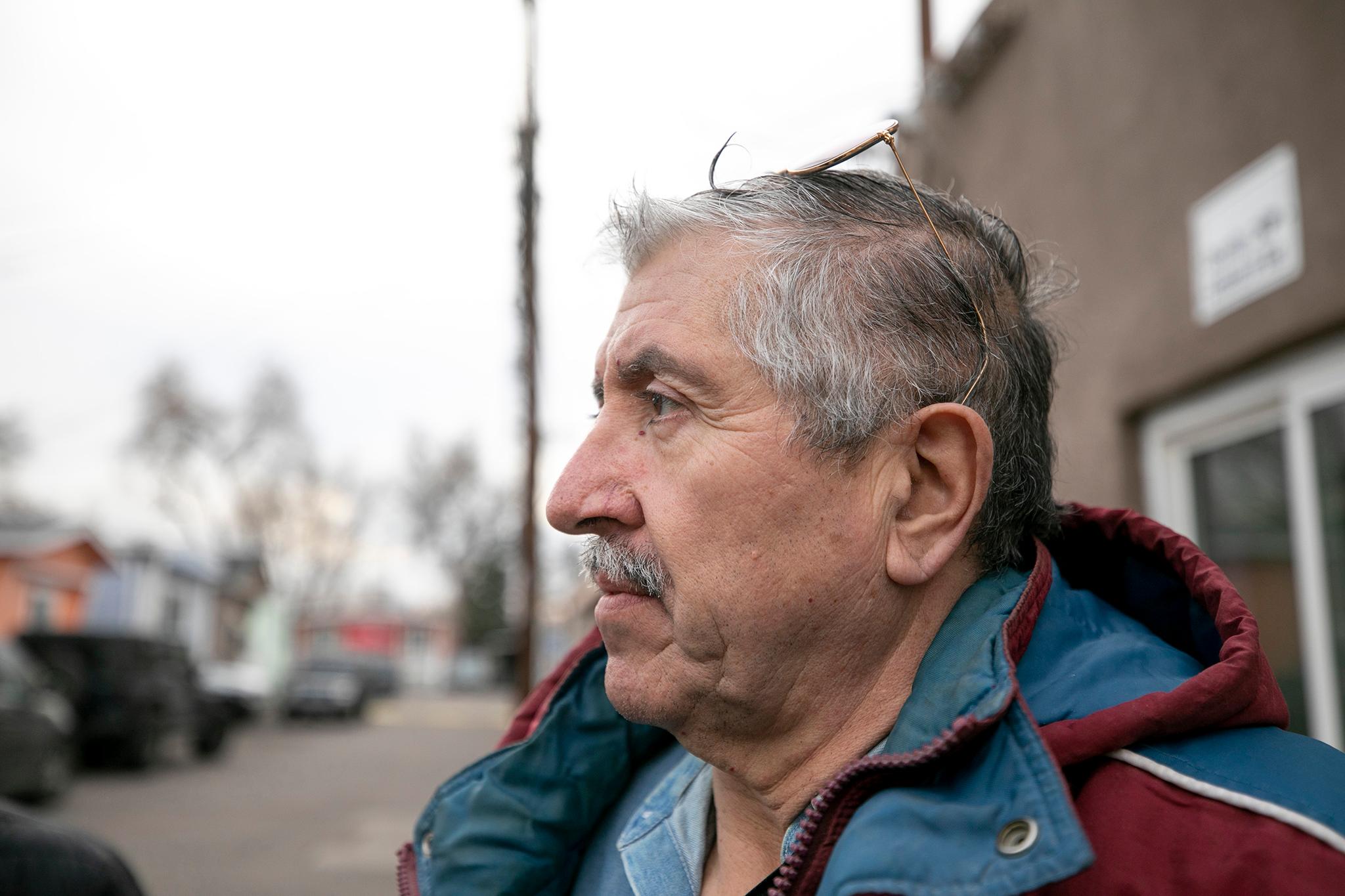
For one long-time organizer, the moment is bittersweet, given the recent history of displacement in the Denver area, particularly among communities of color.
Andrea Chiriboga-Flor has worked as an organizer in the neighborhood since 2014, first with the economic justice nonprofit 9to5, and now as Executive Director of her new organization, the Justice for the People Legal Center. She has spent months helping the Montevista residents organize.
Chiriboga-Flor has seen wins over the years, like fighting to get a bus route in the area, which previously lacked public transportation. But she has also supported community members through a number of other struggles. And in 2019, she fought for residents trying to purchase their own park in Aurora. The owner turned down the offer and sold to an outside buyer, displacing residents.
"It was so heartbreaking, devastating... After that, I was like 'I don't think I should do this anymore. I failed,'" she said. "It's huge that this is finally happening. I will never not recognize, this is because residents were willing every step of the way. Every step of the way."
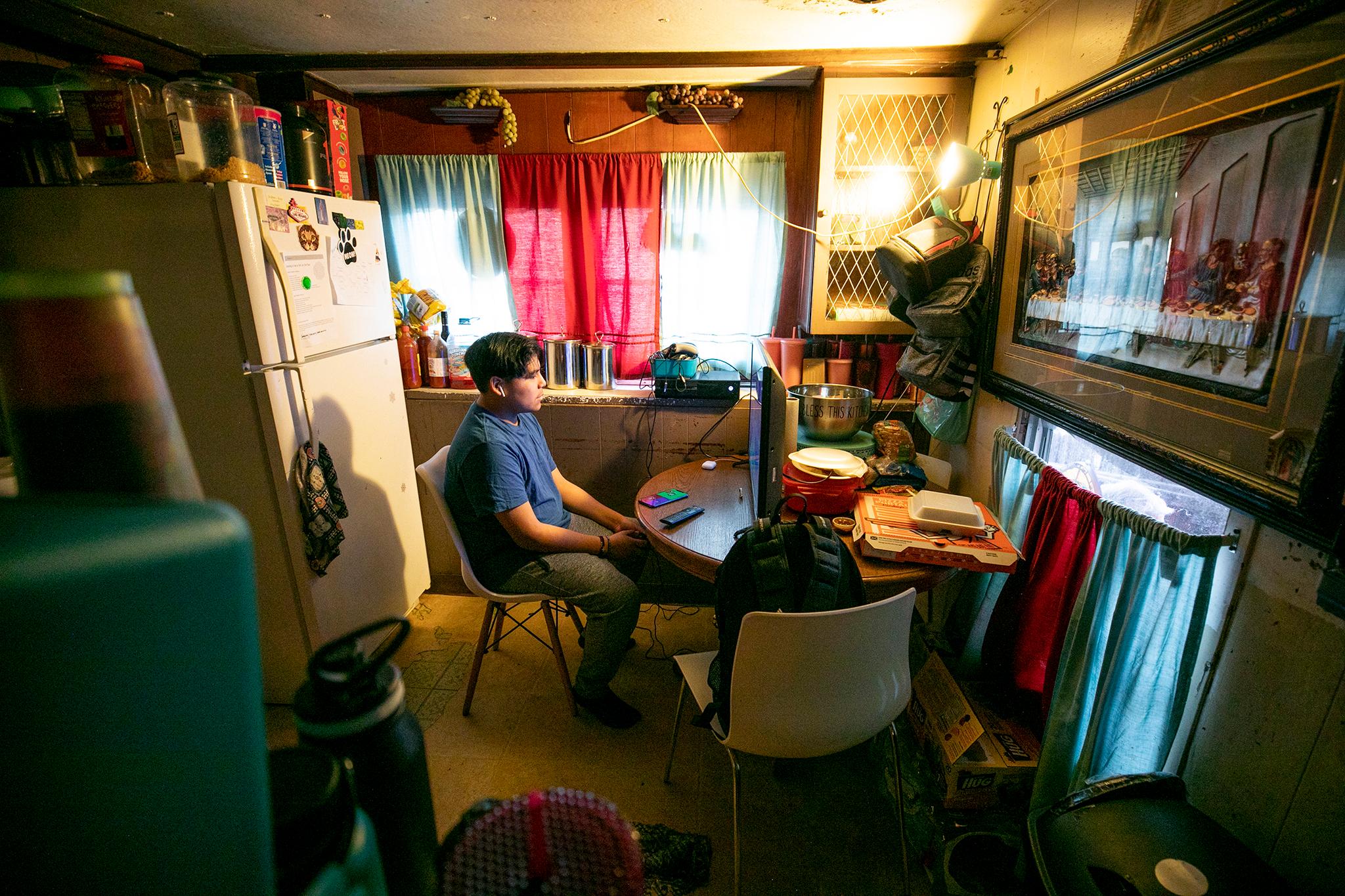
Residents, organizers and politicians say there's still a lot of work to do to protect mobile home park residents from displacement.
On the legislative side, City Council needs to create a specific zoning district that applies to mobile home parks in a uniform way. Between the five left in Denver, current zoning is all over the map; some are zoned as duplexes, others as industrial sites and others as mixed-use zoning. Torres said City Council is resuming its working group on mobile home parks this fall.
Then there is the question of the four other parks in the city, at similar risk of displacement. None are currently up for sale, but they could face the same issues as the park in Westwood if that were to happen. The cooperative model at Montevista could become an example for other parks down the line.
"Can we recreate something like this in the other parks?" Torres asked. "I definitely think it could stand to share what could become a model."
Residents also hope to raise more funding. While they have enough for the offer, the more money they can raise in the form of grants, rather than loans, the more they can bring down rents for residents. They also have to get their governance structure off the ground and decide on things like maintenance priorities. Their nonprofit partner Sharing Connexion will stand in as the owner on paper for three years while residents set everything up.
"It's a huge undertaking," Chiriboga-Flor said.
Denverite reporter Isaac Vargas contributed Spanish-language interpretation reporting on this story.

